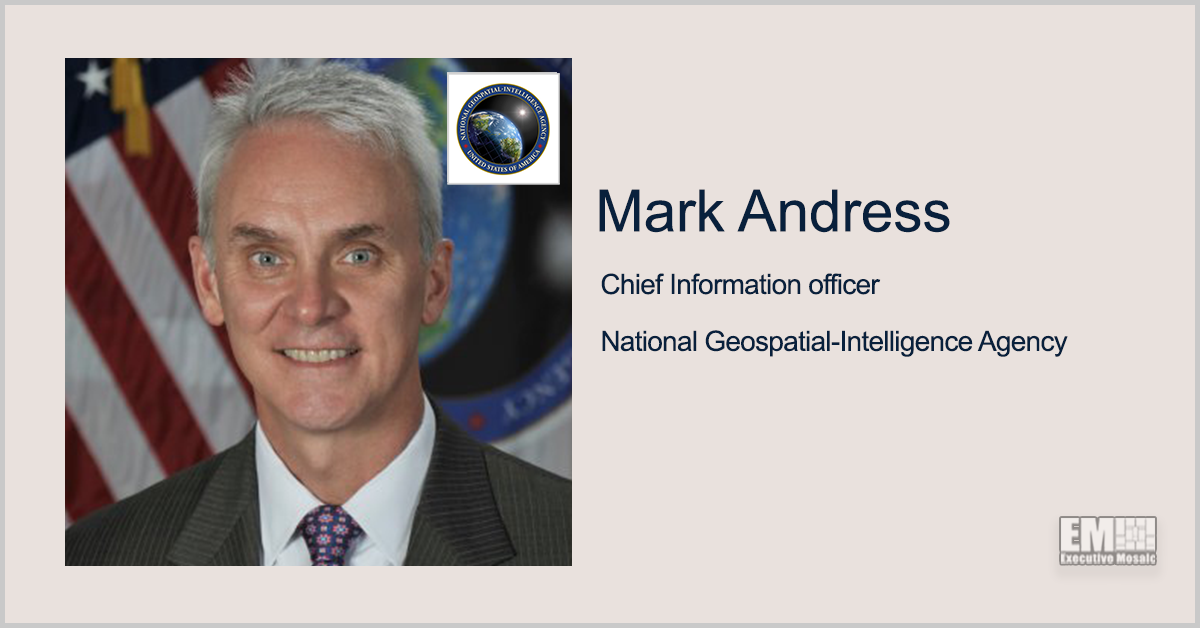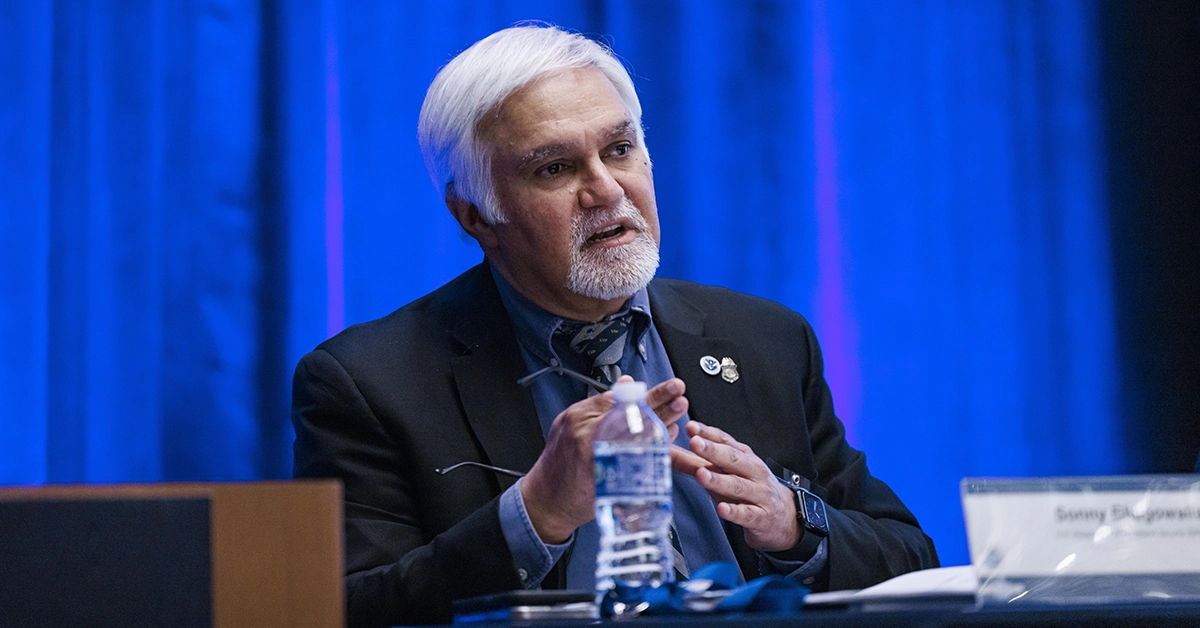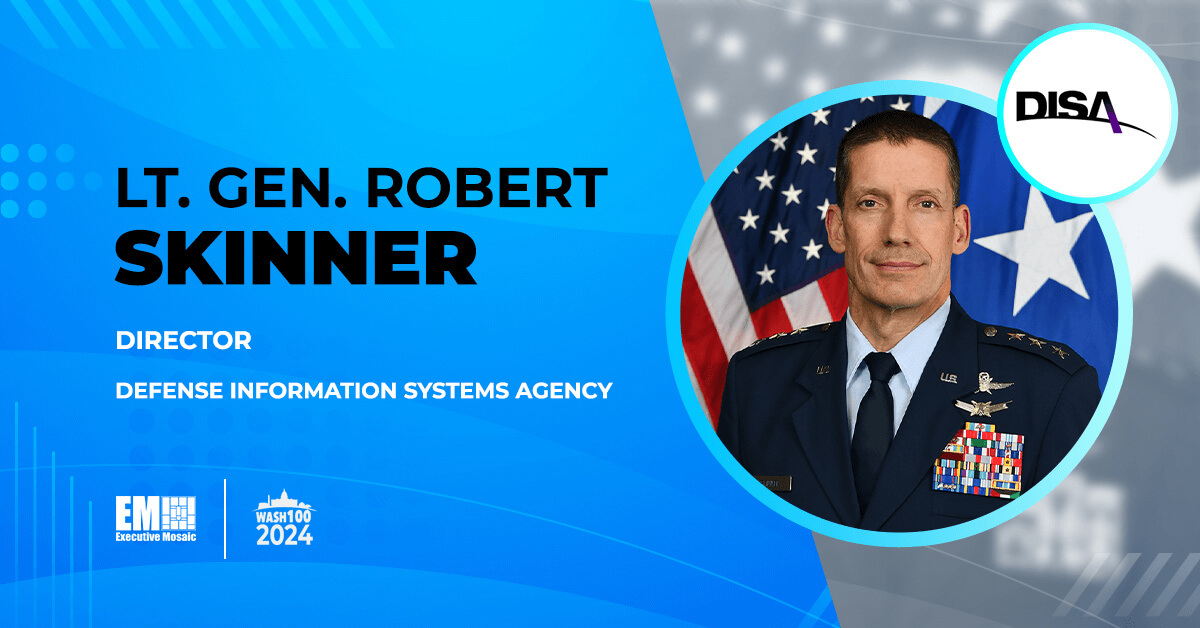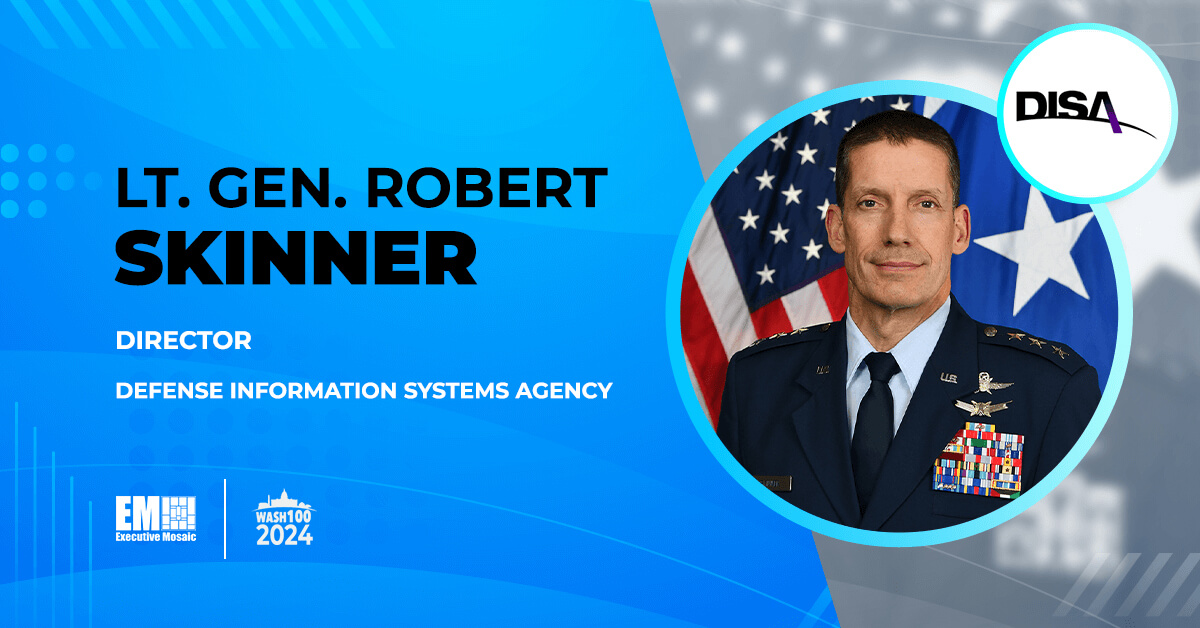The National Geospatial-Intelligence Agency is shifting its workflow approach and prioritizing speed to close its pacing gap with other global powers in today’s rapidly changing geopolitical environment, according to NGA Chief Information Officer Mark Andress.
“We’re moving away from a Continental U.S.-first, human-initiated, point-to-point classified workflow,” Andress said Tuesday at the Potomac Officers Club’s 3rd Annual CIO Summit. “That way of work, however successful it was, speaks to government-centralized, highly classified, exquisite, intelligent production that was fitting for the sensors and the times and advantage we had, but won’t support, exclusively, our future.”
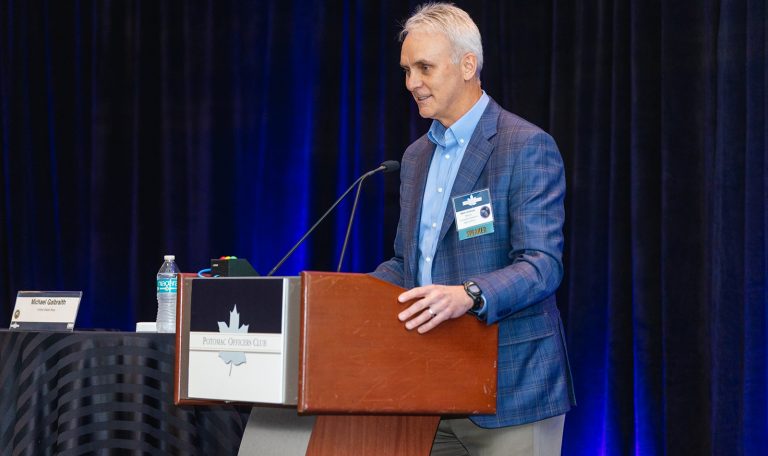

He explained, “We’re moving to a globally originated automation- and model-first workflow focused on all GEOINT types and sources and executed at the lowest security domain possible by the best partner to deliver it.”
Andress likened the global intelligence landscape to a Formula 1 race, noting that as new technologies and advancements emerge, the race itself changes and the ranks of the competitors are thrown into flux.
“We’re coming off of a period where essentially the United States has had the supercharged car in an unfair race for decades,” he analogized, “and we’re moving into an area where we no longer enjoy the technical advantages that we have had that got us there. So we look at our adversaries, they’re older, they’re more technology savvy, and interestingly, they are gaining or have access to many of the same technologies that we have enjoyed in the past and are competing with us.”
To regain this technical advantage, the NGA is prioritizing modernization across a network of speed enablers including a hybrid cloud, service-centric architecture, an AI-ready workforce, modern software, trusted partners, data management, standards, AI/ML and cybersecurity.
Among these enablers, the ones that may take the longest to develop are data management and standards, Andress said.
Andress also discussed NGA’s impending takeover of Project Maven – the Department of Defense’s artificial intelligence accelerator program – starting in fiscal year 2023.
The program’s realignment, as dictated in President Biden’s budget request for FY23, gives NGA “responsibility for label data, AI algorithms, test, evaluation, the platform, standards, interfaces and governance,” he shared.
Andress called the move an “obvious choice” and expressed his excitement in gaining operational control of Project Maven. “When you take what we’ve been doing and combine that with some of the most knowledgeable people in the world, our imagery exploitation and the technologies that enable that – the transition of the Maven program brings together the human and machine under one roof.”


Hear from other NGA officials and intelligence community leaders during GovCon Wire’s Second Annual IC Acquisition and Technology Innovation Summit on May 4.
NGA Deputy Director Tonya Wilkerson is slated to keynote the event alongside other keynote speakers like Dr. Stacey Dixon, principal deputy director of national intelligence and Greg Smithberger, CIO and director of the capabilities directorate for the National Security Agency. Register today to save your spot!



